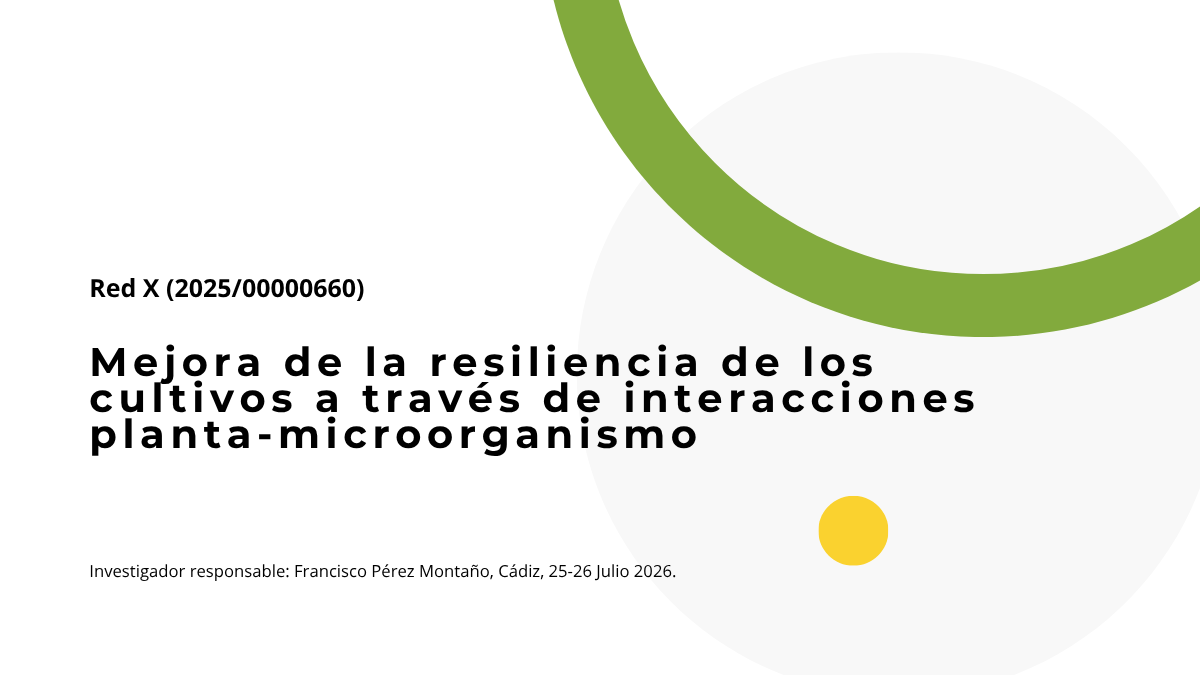Improving crop resilience through plant-microorganism interactions
Principal investigador: Francisco Pérez Montaño, Sevilla
This Network is an initiative funded by the University of Seville’s Own Research Plan (VIIPPIT-2025-I.10 – Grants for the Creation and Consolidation of Thematic Networks) that seeks to create sectoral thematic networks to connect actors in the science-technology-business system. Its objective is to facilitate the exchange and transfer of knowledge, promoting cooperation to create these networks of excellence.

The aim is to create a multidisciplinary network that brings together various research teams (from universities and technological centers), companies, cooperatives, and foundations from across the country. Although these entities have diverse specializations and research topics, they share a common focus on studying beneficial interactions between plants and microorganisms.
The goal is to unify knowledge, resources, and efforts in the study of these interactions, emphasizing their importance, transferability, and applicability to improve crop tolerance to stress conditions caused by climate change (mainly drought, high temperatures, and salinity), and to promote sustainable agricultural production, one of the key pillars of the 2030 Agenda. Therefore, the main objective of this proposal is to establish a collaborative framework to ensure food security through biotechnology, despite the growing global demand and competition for resources.
To achieve this overall goal, the following specific objectives are proposed:
-
Encourage the active exchange of ideas and the establishment of research collaborations among different research groups.
-
Facilitate the sharing of equipment, services, methodologies, and technologies implemented within each group of the network to develop joint research.
-
Promote the transfer of research results to industry and strengthen interaction with the socio-productive sector.
-
Disseminate the activities and achievements of the Network to society.
The Network currently consists of 16 research groups from universities or research centers, 6 biotechnology companies, 1 cooperative, and 1 foundation.

